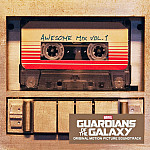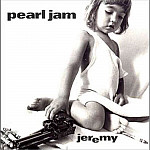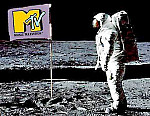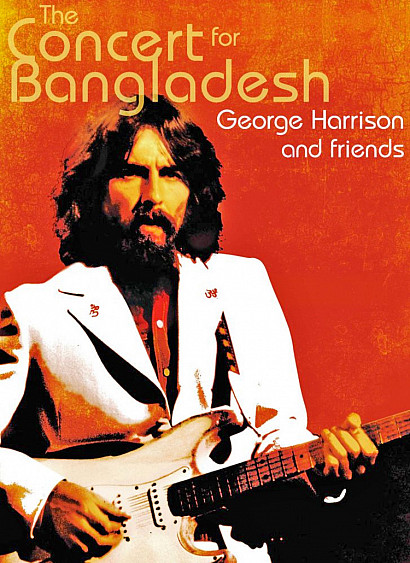1 AUGUST
Featured Events
 2014 The movie Guardians of the Galaxy opens in America, reviving '70s favorites like "Hooked On A Feeling" and "Come And Get Your Love."More
2014 The movie Guardians of the Galaxy opens in America, reviving '70s favorites like "Hooked On A Feeling" and "Come And Get Your Love."More
1994 Michael Jackson and Lisa Marie Presley announce that they are married, having wed at a secret ceremony in the Dominican Republic 11 weeks earlier.
 1992 Pearl Jam's "Jeremy" video, depicting the teen suicide described in the song, makes its debut on MTV. It goes on to win Video of the Year at the VMAs.More
1992 Pearl Jam's "Jeremy" video, depicting the teen suicide described in the song, makes its debut on MTV. It goes on to win Video of the Year at the VMAs.More
1990 After writing "Blaze of Glory" for the film, Jon Bon Jovi makes his acting debut in Young Guns II, playing an inmate who gets shot.
 1981 MTV goes on the air, bringing music videos to the masses - at least the ones with cable.More
1981 MTV goes on the air, bringing music videos to the masses - at least the ones with cable.More
1971 The Sonny And Cher Comedy Hour, starring the popular duo, premieres on CBS.
1942 Jerry Garcia of the Grateful Dead is born in San Francisco, California.
1 AUGUST
In Music History
2015 Rush play their last concert, closing out their R40 Live tour with a show at The Forum near Los Angeles. It's not announced as their farewell, but the band has hinted it might be. At the end of the show, drummer Neil Peart uncharacteristically comes to the front of the stage to take a bow with his bandmates.
2014 The BBC screens Elvis: That's Alright Mama 60 Years On to celebrate the 60th anniversary of the recording of the song: July 5, 1954.
2012 Tony Sly (frontman for No Use For a Name) dies in his sleep at age 41. No cause of death is revealed.
2006 30-year-old Andy Richardson dies after he is beaten in the mosh pit during the Deftones' set at the Family Values tour in Atlanta.
1996 Bill Buchanan, known for a songwriting partnership with Dickie Goodman that produced the 1956 hit "The Flying Saucer," dies of cancer at age 81.
1994 The Rolling Stones politely refuse an invitation to play at the Bill Clinton White House, though they play his 60th birthday party in 2006.
1994 The Rolling Stones begin their Voodoo Lounge tour with a show in Washington, D.C. Their first tour without bass player Bill Wyman, it goes for 134 shows and finishes as the top-grossing tour of all time.
1989 The Rolling Stones release their album Steel Wheels, which contains the hit "Mixed Emotions."
1988 Mudhoney's first-ever single is released: "Touch Me I'm Sick" b/w "Sweet Young Thing Ain't Sweet No More," via Sub Pop Records.
1988 Cincinnati AM radio station WCVG changes its format, becoming the first US all-Elvis radio station. The burning love for the format dies out after a year, and on August 16, 1989, it switches to talk.
1988 Soundgarden release their second EP, Fopp, on Sub Pop Records. Its title comes from the name of an Ohio Players song, which they cover on the set.
1987 MTV Europe makes its debut. The first video shown is Dire Straits' "Money for Nothing," a song where Sting proclaims, "I want my MTV."
1987 Guns N' Roses head to Park Plaza and 450 South La Brea in Hollywood and shoot their first video, for "Welcome To The Jungle."
1985 Tom Waits releases Rain Dogs, widely considered one of his most important and innovative works. Synthesizers and samples - very common in the 1980s - are deliberately absent as Waits develops the unique approach he began on Swordfishtrombones.
1984 Jermaine Jackson appears on an episode of CBS's long-running soap opera As The World Turns.
George Harrison Hosts First Major Charity Concert
 1971
1971George Harrison hosts the Concert For Bangladesh, the first major charity concert and the precursor to Live Aid. Guests include Bob Dylan, Eric Clapton, Billy Preston and Ringo Starr.
Harrison was producing the Badfinger album Straight Up when his good friend, Ravi Shankar, asked him to help out with a concert he was working on to aid refugees from Bangladesh who had fled to India, Shankar's homeland. Shankar had many friends and relatives in the region who were affected. Bangladesh was known as Eastern Pakistan before declaring independence in March 1971. It had long been at odds with the government of Pakistan and was still reeling from a cyclone that hit in November 1970. The refugee crisis and plight of the war-torn nation wasn't a major news event outside the region, and Harrison only learned about it through Shankar, who was hoping to raise maybe $25,000 and wanted George to simply make an appearance. Harrison took it a lot further, proposing a star-powered concert in a major venue with a live album and film to go along with it, all going to help the cause. The ex-Beatle got on the phone, booked Madison Square Garden in New York City, and started lining up his famous friends to participate. Among them: Eric Clapton, a good friend from Harrison's days with The Beatles who played on their song "While My Guitar Gently Weeps." His drinking had become a problem, so his appearance was no sure thing. Phil Spector, who produced Harrison's first album after The Beatles broke up: All Things Must Pass. He's in charge of producing the live album. Ringo Starr, Harrison's Beatles bandmate. Leon Russell, a renown keyboard player Harrison was using on the Badfinger album. Billy Preston, another Beatles associate who played piano on "Get Back." Bob Dylan, who hadn't toured since his motorcycle accident in 1966 but was good friends with Harrison. He's a long shot. The whole thing came together in about six weeks. The show sold out quickly, so another show with the same lineup - billed as "George Harrison and Friends" - was added, which gives them more material for the album and film. The show opens with a set of Indian music by Ravi Shankar. Harrison then takes the stage and joins his guests for a mix of his own songs and ones they made famous, including "While My Guitar Gently Weeps" with Clapton, "It Don't Come Easy" with Ringo, and "That's the Way God Planned It" with Preston. After doing the Beatles favorite "Here Comes the Sun," he looks over his shoulder to see if Bob Dylan has arrived. He has, and Dylan delights the crowd with a five-song set that includes his most famous songs, "Blowin' In The Wind" and "Mr. Tambourine Man." It would be his last performance until 1974. Harrison closes the show with a song called "Bangla Desh," which he wrote for the occasion and released three days earlier. The concerts raise about $250,000, but the album and film earn a lot more, bringing the total to about $11 million, which is given to UNICEF after a long accounting delay. The effort provides a template for Live Aid, which is done on a much larger scale but with the same concept, including an accompanying album and film and a spirit of giving.
Categories
©2024 Songfacts®, LLC

Comments
send your comment